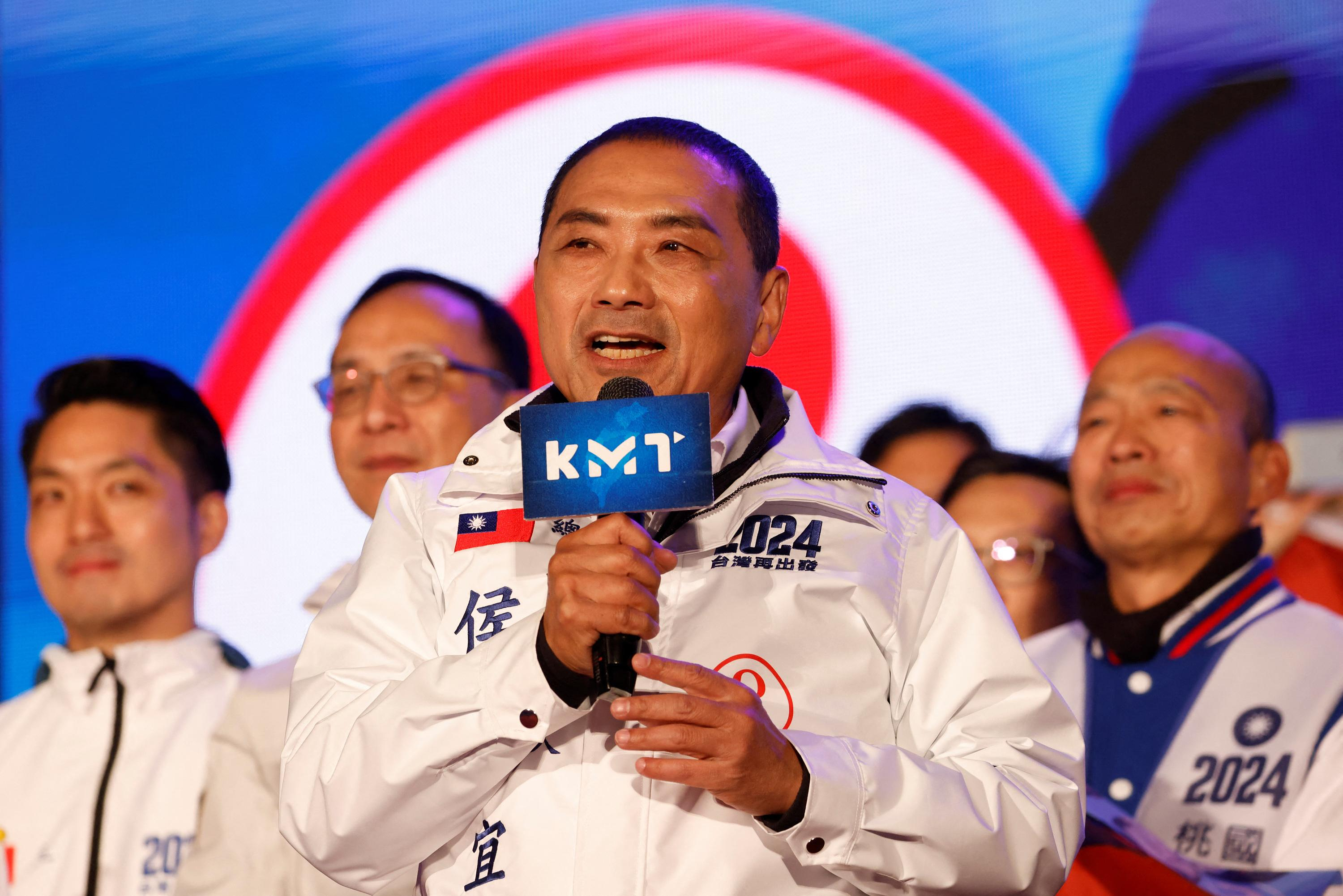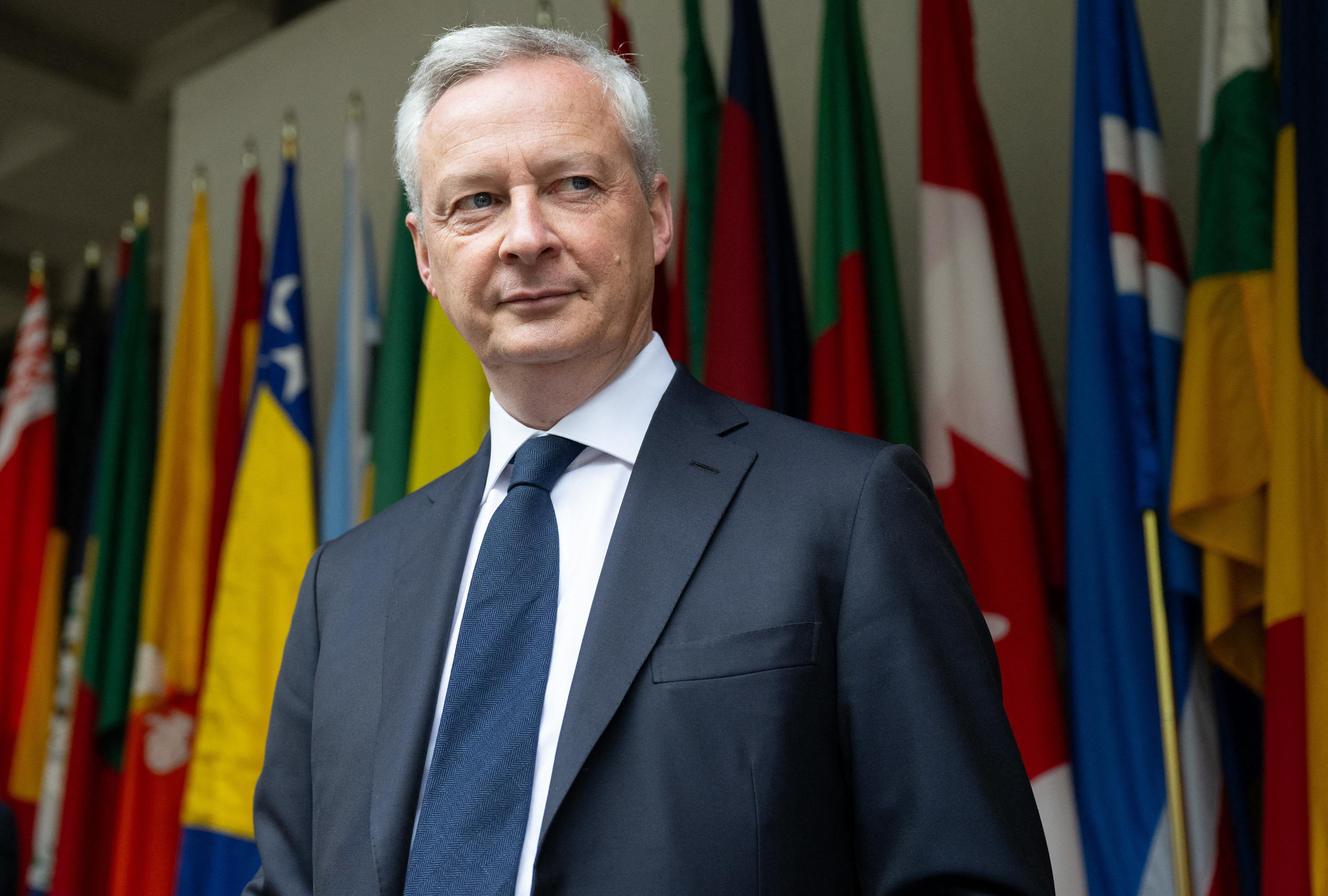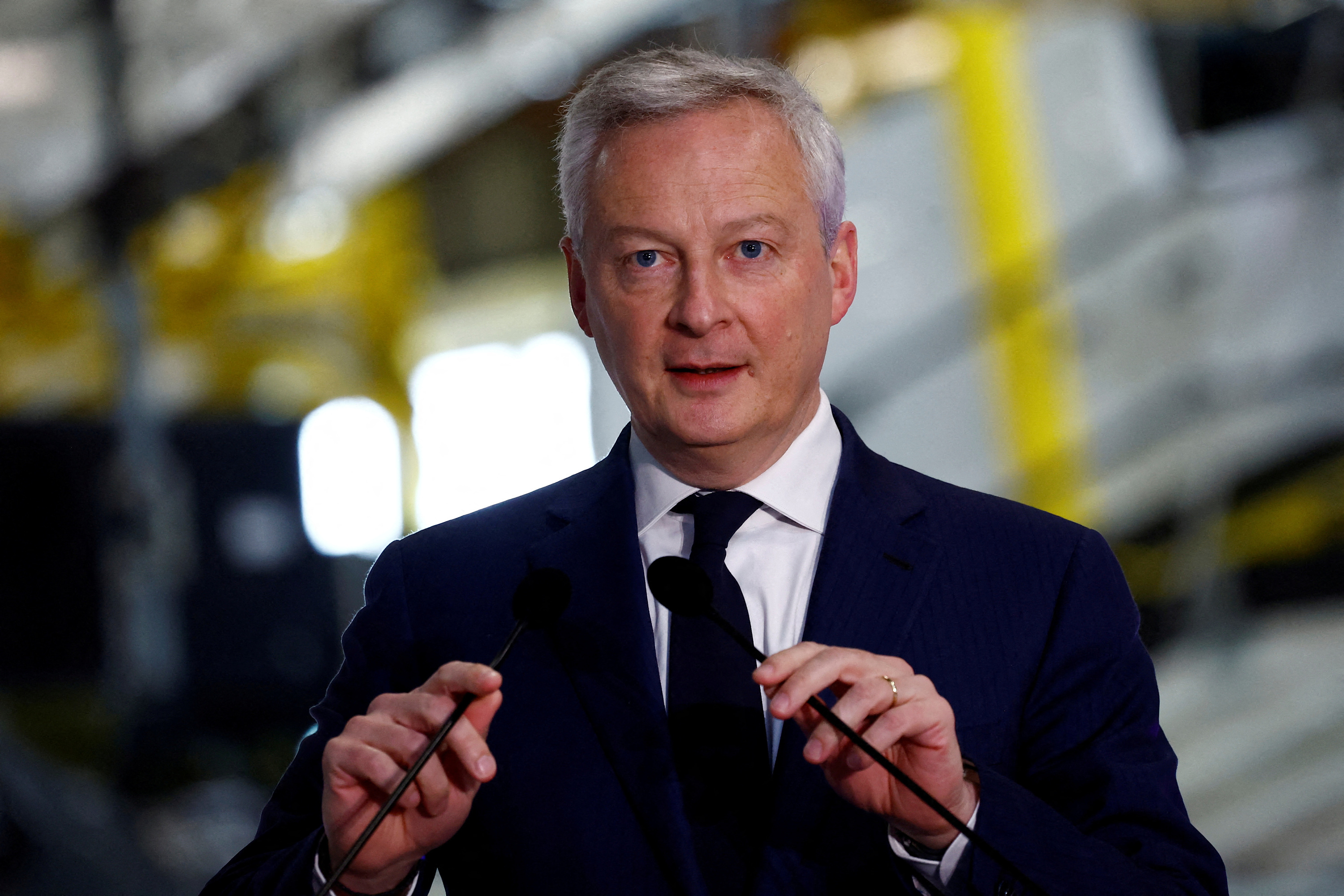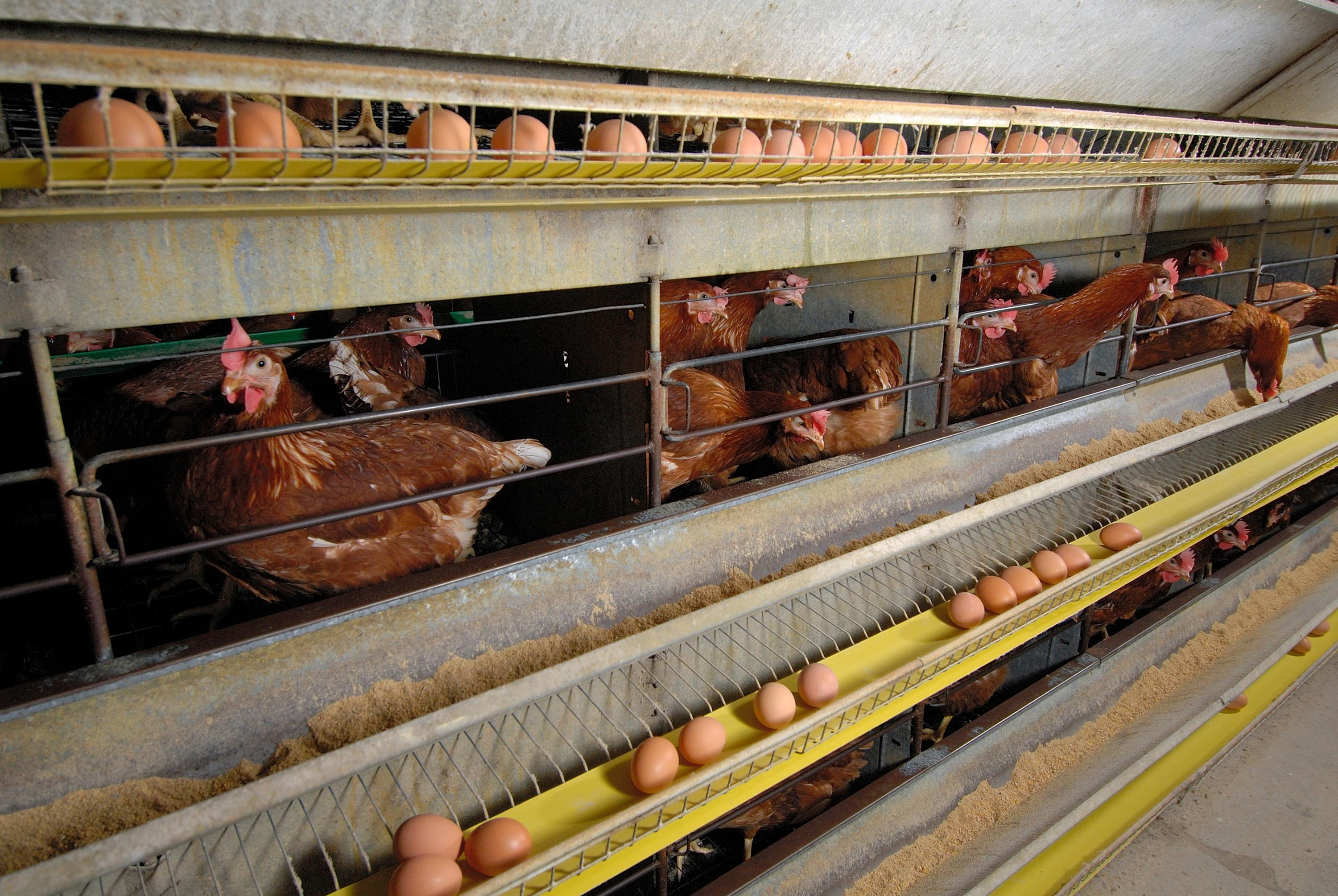On the eve of the presidential election in Taiwan, Hou Yu-ih, candidate of the Kuomintang (KMT), follows on the heels of favorite Lai Ching-te, candidate of the ruling Democratic Progressive Party (DPP), and supporter of a strong Taiwanese identity .
In recent weeks, the Kuomintang has displayed a more nuanced position than usual, claiming to be centrist and neutral towards China. Objective: to reassure the electorate wary of this historic Taiwanese party with a much more ambiguous position for a long time, and losing in the last elections of 2016 and 2020. But what really is the DNA of this party? A look back at the history of relations between the Kuomintang (KMT) and China.
Created in 1912 by Sun Yat-sen, the KMT was the only party authorized in Taiwan until 1986 and was then a faithful ally of the Chinese Communist Party (CCP). This is evidenced by the wishes for lasting collaboration expressed by its founder before his death in 1925. These wishes, his successor Chiang Kai-Shek will grant them by becoming president of the Republic of China (Taiwan), and leader of the Kuomintang from 1950 to 1975, but above all, by maintaining good relations with China, despite its warlike past against the CCP army of Mao Zedong.
Notwithstanding his opposition to Chinese communism for most of the 20th century, Chiang Kai-Shek governed Taiwan under one-party rule. It is precisely this factor which associates it ideologically with the Chinese Communist Party, according to Emmanuel Lincot, sinologist and researcher associated with IRIS: “supported by the Soviet Union for several decades, the matrix of the Chinese Communist Party and that of the Kuomintang is the same, they are totalitarian referents. A similar mode of operation dating from the previous century, but which left traces in current political life in Taiwan. “The Kuomintang has not completely shed its totalitarian heritage. The Chinese Communist Party and the Kuomintang still share a common totalitarian vision today,” deciphers the sinologist.
Also read: The hidden role of the Kuomintang nationalists in the Second World War
The “Republic of China”, historically totalitarian, softened and began a shift towards democracy with the death of Chiang Kai-Shek in 1975. The first opposition party, the Progressive Democratic Party, was created in 1986. Ten years later Later, an election by direct universal suffrage was organized for the first time. Since democratic change is not in the KMT’s DNA, how can we explain the party’s persistence?
In addition to the historical and ideological attachment between the KMT and the CCP, an identity link exists between the two republics. “For the Kuomintang, there is no doubt that Taiwan is historically part of mainland China and that its population actually comes from it” underlines Emmanuel Lincot. The KMT being a Chinese political party originally, it was then exported to Taiwan following its defeat against the CCP army in 1949.
Communism forced the historic political party to leave mainland China, but did not detach it from its cultural and identity ties to China. This is evidenced by the existence of a “pan-blue” coalition, made up of parties, including the KMT, claiming a Taiwanese nationalist identity.
The economic link that Taiwan maintains with China also remains essential for the KMT, which supports strong economic cooperation with its neighbor. In this register, the rejection of the secessionist project, carried by the competing party DPP, leader of the “pan-green” coalition, is also a way for the Kuomintang to promise an economic future for Taiwan.
China, the world leader in trade, has decided not to collaborate economically with countries that recognize Taiwan as an independent nation. In such a context, provoking a secession from China could cause economic difficulties for Taiwan, argues the KMT. This is one of the reasons why the pan-blue party wants to maintain privileged relations with its neighbor.
This collaboration is no less important for China. Particularly with regard to the Taiwanese company Foxconn, underlines Françoise Mengin, specialist in Asia: “nearly 40 million Chinese jobs depend on Taiwanese multinationals, among which there is Foxconn” which has some 800,000 employees in China. An interdependence that Emmanuel Lincot confirms: “Economic interdependence is considerable, which gives the argument of the impossibility of a war but which does not take into account the unpredictability of Xi Jinping”. A risk that the KMT does not want to take. This is why new agreements were concluded between the KMT and the CCP in April 2005. This collaboration continued for a decade, thanks to two electoral victories, in 2008 and 2012, before the DPP returned to power. .
If on the one hand the DPP makes a point of defending Taiwanese identity and denouncing Chinese interference, China is exerting significant pressure on the elections. In this context, the Kuomintang seems to place itself in an intermediate position. KMT rhetoric maintains pressure on voters by raising the prospect of war. The KMT thus spreads the implicit idea that “if it’s not us (the Kuomintang) it’s war,” summarizes Emmanuel Lincot.
Because if in the context of the elections, the KMT defends itself by rejecting any agreement in principle with China, it still has the advantage of maintaining a dialogue with it. “The loss of influence of the Kuomintang on Taiwanese opinion is likely to amplify tensions with China, the Taiwanese party being a trusted interlocutor for the Chinese Communist Party” specifies the sinologist researcher.
Aware of carrying a rather damaging pro-Chinese label, KMT candidate Hou Yu-ih rejected the accusations of recent weeks. He was criticized in particular for wanting to “sell” the island to China. The candidate displayed a neutral stance: “whatever China thinks, what public opinion in Taiwan wants us to do is maintain the status quo. The question of reunification will not be on the agenda if I am elected,” he also promised, despite the Chinese president’s promise of reunification during his New Year’s speech.
The rest of the Kuomintang leader's statement must not have been to the Chinese president's taste since he even went further by mentioning Beijing's great rival: "we wish to strengthen military cooperation between Taiwan and the United States . We are happy to see the United States play a positive role in preserving stability in the Taiwan Strait (...). Whatever happens here, the United States will always remain our faithful ally.

 What is chloropicrin, the chemical agent that Washington accuses Moscow of using in Ukraine?
What is chloropicrin, the chemical agent that Washington accuses Moscow of using in Ukraine? Poland, big winner of European enlargement
Poland, big winner of European enlargement In Israel, step-by-step negotiations for a ceasefire in the Gaza Strip
In Israel, step-by-step negotiations for a ceasefire in the Gaza Strip BBVA ADRs fall almost 2% on Wall Street
BBVA ADRs fall almost 2% on Wall Street Sánchez cancels his agenda and considers resigning: "I need to stop and reflect"
Sánchez cancels his agenda and considers resigning: "I need to stop and reflect" The Federal Committee of the PSOE interrupts the event to take to the streets with the militants
The Federal Committee of the PSOE interrupts the event to take to the streets with the militants Repsol: "We want to lead generative AI to guarantee its benefits and avoid risks"
Repsol: "We want to lead generative AI to guarantee its benefits and avoid risks" Osteoarthritis: an innovation to improve its management
Osteoarthritis: an innovation to improve its management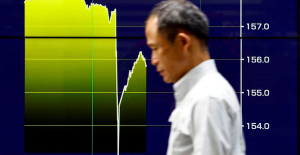 The yen jumps 3% then falls again, amid speculation of Japanese intervention
The yen jumps 3% then falls again, amid speculation of Japanese intervention A very busy Friday on the roads of Île-de-France before the Ascension Bridge
A very busy Friday on the roads of Île-de-France before the Ascension Bridge Fraud: the government is preparing new measures for the fall
Fraud: the government is preparing new measures for the fall Nike breaks the bank to keep the Blues jersey
Nike breaks the bank to keep the Blues jersey Madonna ends her world tour with a giant - and free - concert in Copacabana
Madonna ends her world tour with a giant - and free - concert in Copacabana Harry Potter: Daniel Radcliffe “really saddened” by his final breakup with J.K. Rowling
Harry Potter: Daniel Radcliffe “really saddened” by his final breakup with J.K. Rowling Leviathan, New York Trilogy... Five books by Paul Auster that you must have read
Leviathan, New York Trilogy... Five books by Paul Auster that you must have read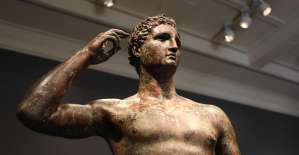 Italy wins a decisive round against an American museum for the restitution of an ancient bronze
Italy wins a decisive round against an American museum for the restitution of an ancient bronze Omoda 7, another Chinese car that could be manufactured in Spain
Omoda 7, another Chinese car that could be manufactured in Spain BYD chooses CA Auto Bank as financial partner in Spain
BYD chooses CA Auto Bank as financial partner in Spain Tesla and Baidu sign key agreement to boost development of autonomous driving
Tesla and Baidu sign key agreement to boost development of autonomous driving Skoda Kodiaq 2024: a 'beast' plug-in hybrid SUV
Skoda Kodiaq 2024: a 'beast' plug-in hybrid SUV The home mortgage firm rises 3.8% in February and the average interest moderates to 3.33%
The home mortgage firm rises 3.8% in February and the average interest moderates to 3.33% This is how housing prices have changed in Spain in the last decade
This is how housing prices have changed in Spain in the last decade The home mortgage firm drops 10% in January and interest soars to 3.46%
The home mortgage firm drops 10% in January and interest soars to 3.46% The jewel of the Rocío de Nagüeles urbanization: a dream villa in Marbella
The jewel of the Rocío de Nagüeles urbanization: a dream villa in Marbella Europeans: a senior official on the National Rally list
Europeans: a senior official on the National Rally list Blockade of Sciences Po: the right denounces a “drift”, the government charges the rebels
Blockade of Sciences Po: the right denounces a “drift”, the government charges the rebels Even on a mission for NATO, the Charles-de-Gaulle remains under French control, Lecornu responds to Mélenchon
Even on a mission for NATO, the Charles-de-Gaulle remains under French control, Lecornu responds to Mélenchon “Deadly Europe”, “economic decline”, immigration… What to remember from Emmanuel Macron’s speech at the Sorbonne
“Deadly Europe”, “economic decline”, immigration… What to remember from Emmanuel Macron’s speech at the Sorbonne These French cities that will boycott the World Cup in Qatar
These French cities that will boycott the World Cup in Qatar Mercato: Verratti at Barça? A track studied
Mercato: Verratti at Barça? A track studied Rugby: after the defeat during the Six Nations, the Blues will meet the English in September for a test match
Rugby: after the defeat during the Six Nations, the Blues will meet the English in September for a test match Premier League: Liverpool unveils its new jersey for next season
Premier League: Liverpool unveils its new jersey for next season Formula 1: Alpine holds its new executive technical director
Formula 1: Alpine holds its new executive technical director